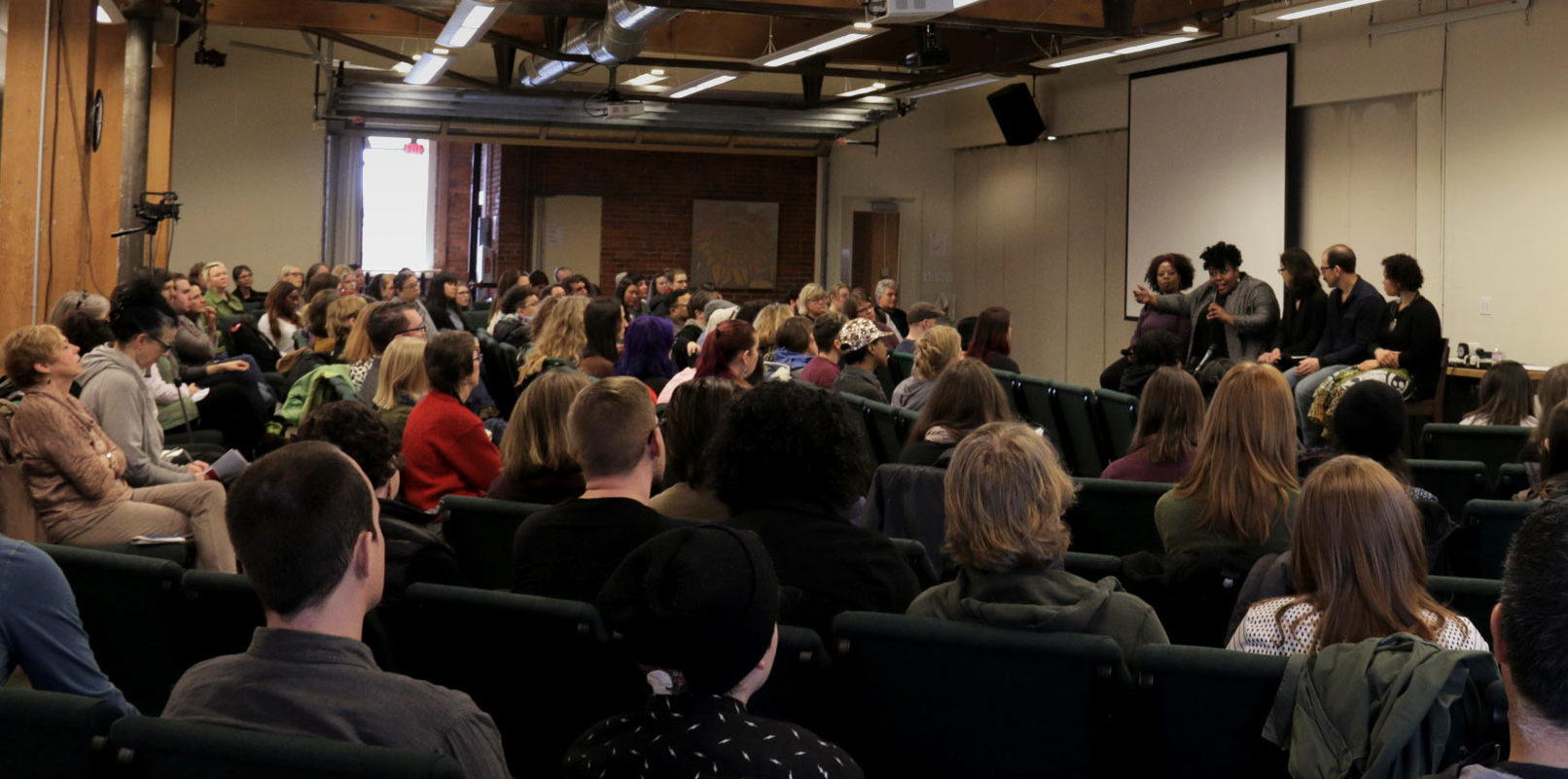Earlier this month, we hosted Humanity Through Community—an event engaging the challenges of community in a changing context. Creative, attorney, and organizer Nikkita Oliver and scholar Robin DiAngelo joined us to grapple with the themes of healing and resistance, followed by panel discussionss inviting socially engaged people of faith to critically engage the challenges of our culture.
The discussion that followed Nikkita Oliver’s stunning talk (which you can watch here) was facilitated by Dr. Angela Parker, Assistant Professor of Biblical Studies. The panel included Rev. Kelle Brown, pastor of Plymouth Church in downtown Seattle and a faith leader in the Center for Religious Wisdom and World Affairs; Andy Carlson (Master of Divinity, ‘11), pastor of Awake in north Seattle and part of the community that founded the Aurora Commons; and Dr. Sharon A. Suh, Professor of Theology and Religious Studies at Seattle University and author of Being Buddhist in a Christian World.
Together, the panelists reflect on the themes of resilience and justice Nikkita evoked, wrestling together with the questions that were sparked among them. They return to the image of a flower pushing through a crack in the concrete, challenging us to not just praise the resilience of the flower but to question the existence of the concrete. “It is time for us to understand that there are many, many roses under the concrete,” says Rev. Brown.
“There are many, many roses under the concrete.”
The panelists urge us to critically examine how we engage conversations of justice and trauma, confronting the ways in which common conceptions of resilience, fragility, and complicity often prop up white supremacy and other systems of oppression. These voices call us to move beyond the tendency to remain silent or to deploy buzzwords in a way that keeps us safe, and to move toward the fearlessness of honesty and action.
“We live in a very pain-avoidant society,” says Nikkita Oliver as she reflects on the words of the panelists. She reminds us that if we choose another path, if we choose to tell whole stories and speak truth to power, we cannot do so alone. We need community with others who know us and affirm us and can continue calling us back to truth, offering “a reflection of the communal struggle that we’re sharing as individuals.”

